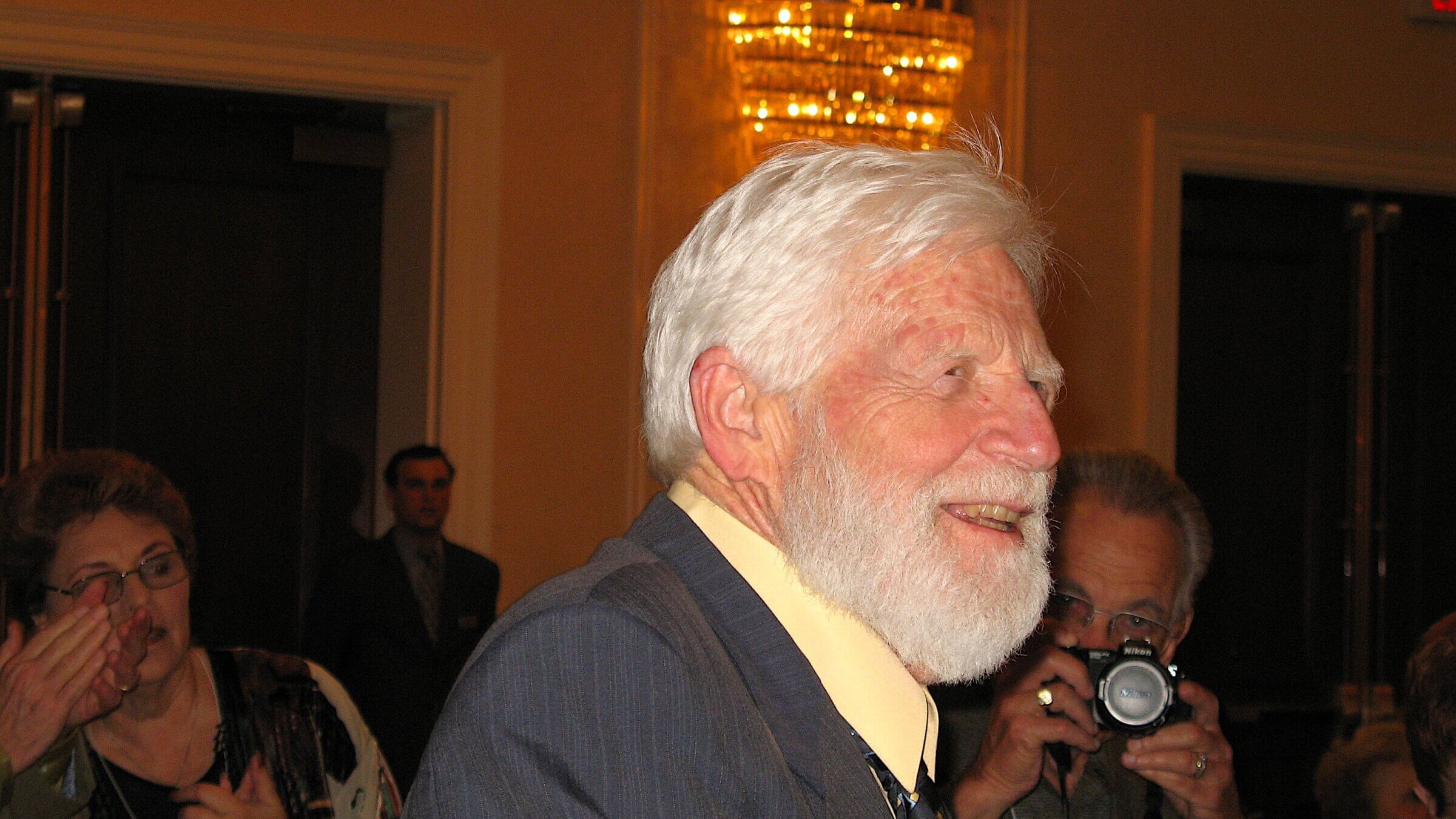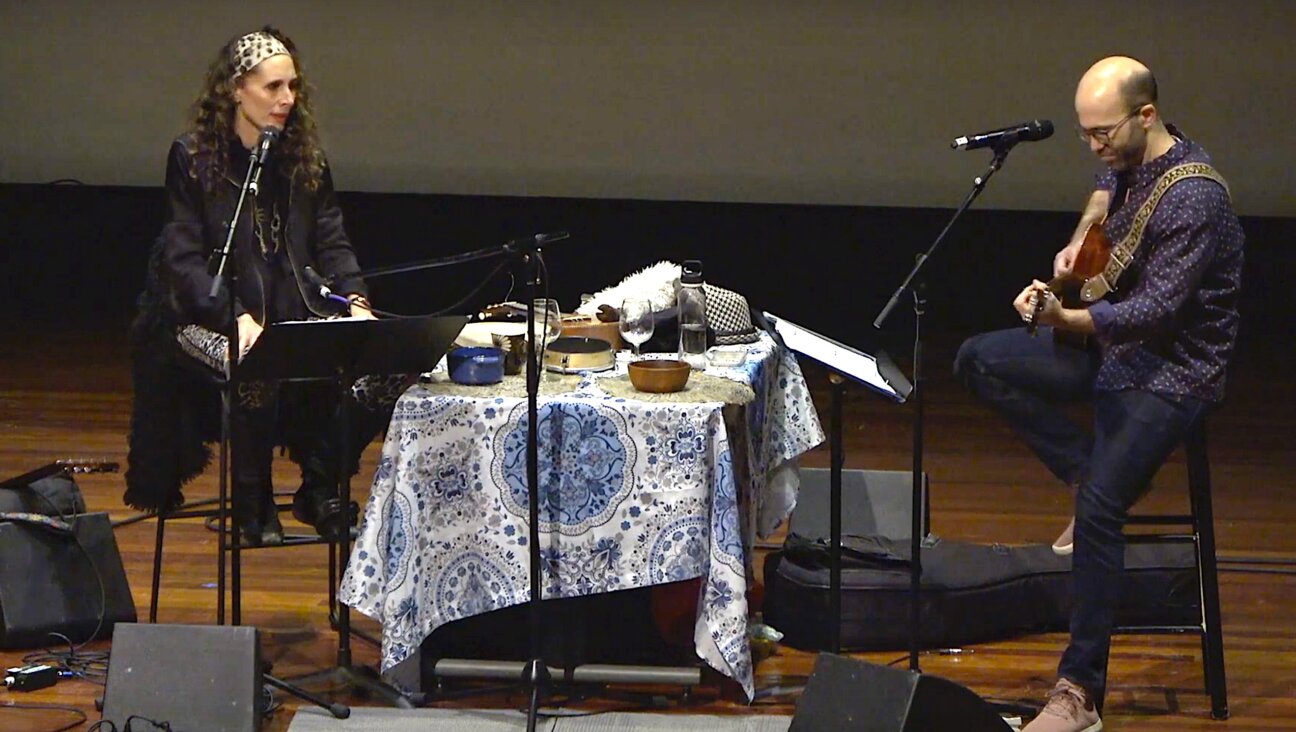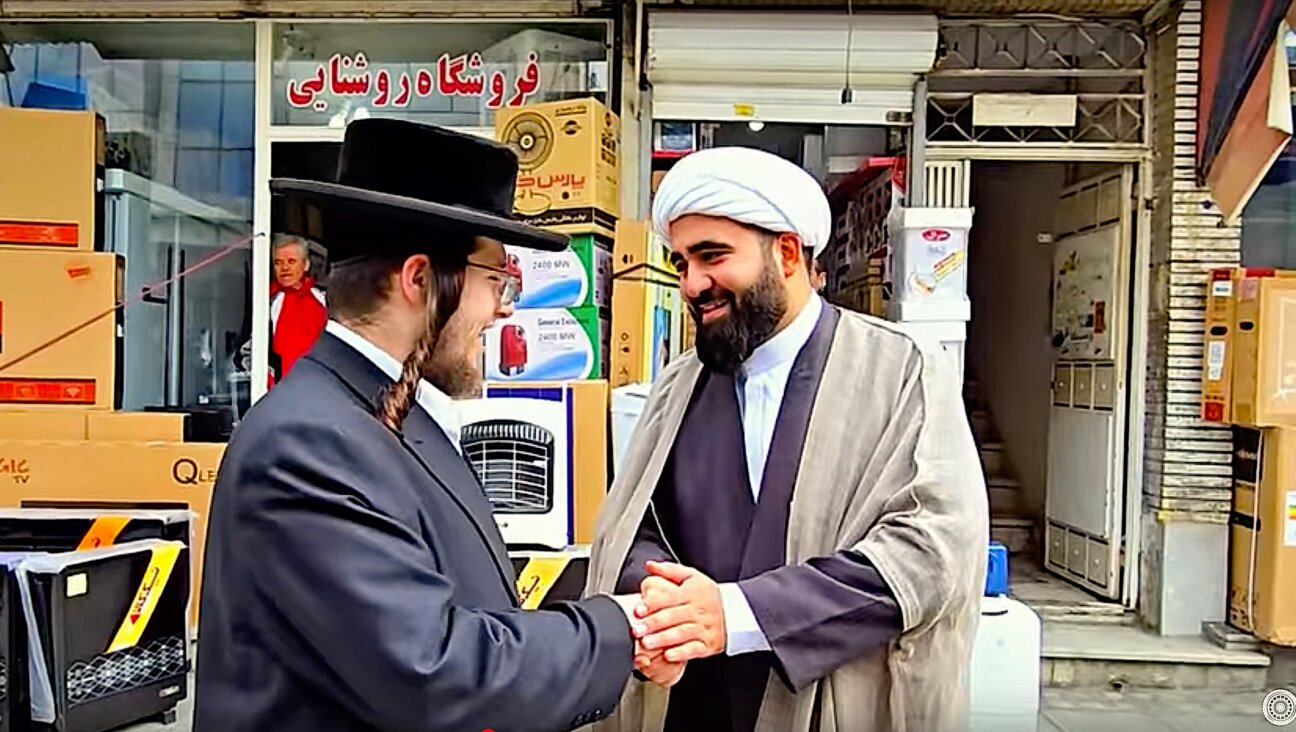Prolific Yiddish conference organizer Philip ‘Fishl’ Kutner has died at 97
The retired science teacher launched Der Bay, a newsletter promoting Yiddish events and groups

Fishl Kutner at a conference of the International Association of Yiddish Clubs in Teaneck, 2006 Photo by Iosif Vaisman
Philip “Fishl” Kutner, who published the Yiddish culture and events newsletter Der Bay and helped organize Yiddish conferences across North America, died at 97 last Tuesday, Feb. 13.
Kutner was born in Harlem, New York in 1926, and spoke Yiddish to his parents Max and Pearl, who were immigrants from the Polish cities of Lodz and Tiktin (Tikocyn), respectively.
After his father bought a poultry farm in rural Frenchtown, New Jersey, Kutner graduated high school and became a local agriculture teacher. A hurricane and flood wiped out the farm in 1955, so Kutner changed course and became a science teacher. After a long teaching career, he moved to San Mateo in the San Francisco Bay Area in 1984, taking a job with his brother Sol’s construction claims and litigation support firm.
Besides devoting time to his work, his wife Sally and raising a family, Kutner served the Jewish community, first in New Jersey and later in California, volunteering as a synagogue president, heading local Zionist organizations, and serving in a leadership position at B’nai Brith.
A one-man expeditionary force into Yiddishland
His penchant for working for the Jewish community turned into extraordinary service for Yiddish.
In 1991, Fishl commissioned “a one-man expeditionary force into Yiddishland,” said fellow Yiddish activist Barbara Goldstein at a speech in 2022 honoring Kutner.
It was then that in honor of Sholem Aleichem’s 75th yahrzeit, Kutner organized a celebration of the writer’s life for the Jewish Community Centers of Greater San Francisco. He began his own local Yiddish conversation group and launched a newsletter promoting Yiddish events and groups in the Bay Area, titling it Der Bay. The newsletter grew into a 16-page monthly featuring listings of Yiddish events the world over. In it, he also published Yiddish word lists and his original Yiddish stories.
Kutner regularly sent out an updated listing of hundreds of Yiddish teachers, Yiddish clubs, translators and klezmer bands in every state in the U.S. and 35 other countries. The details were collected the old-fashioned way: by volunteers making phone calls and cross-referencing various databases.
Kutner also served as president of the International Association of Yiddish Clubs (IAYC).
In 1993, the organization Yiddish of Greater Washington hosted an International Conference of Yiddish Clubs in College Park, Maryland. Kutner attended the conference as a delegate from his own Yiddish club in San Mateo, CA. The event was so well-received that he and a number of other Yiddish enthusiasts agreed to turn this into an annual gathering.
In 1994, the club “Fraynt fun Yidish” (Friends of Yiddish) in Toronto, Canada, hosted the second conference. At that point, Kutner was so busy with organizing that he retired from his brother’s firm.
By 1998, when the fifth conference was convened on the campus of UCLA, the International Conference of Yiddish Clubs was renamed the International Association of Yiddish Clubs, and Der Bay became its official newsletter.
Bringing the Yiddish world together
San Diego-based Yiddish singer Elizabeth Schwartz recalled meeting Kutner for the first time at a 2005 IAYC conference in Minneapolis, and was struck by his warmth and enthusiasm for bringing the Yiddish world together.
“He said, ‘I want to show you the post-conference surveys — because your appearances had been ranked so highly.’ He wanted to share that. Not for any kind of constructive feedback, not because it was expected. He just wanted to show me how much my performances there had been appreciated by the other conference attendees.”
Aaron Castillo-White, the Forward’s former Director of Individual Giving, spoke frequently with Kutner between 2021 and 2023.
“In several calls with Fishl over the last couple of years, his energy remained unconstrained and infectious. He would regularly correspond with the Forward, took an active interest in young Yiddishists who came to him, and always had a smile and a story on hand,” Castillo-White wrote in an email.
Why Yiddish
Kutner was active in the Workers’ Circle, serving as Chairman of the Northern California district and West Coast representative on its national executive board.
In an interview with the Jewish News of Northern California in 1998, he reflected on why he had joined: “It’s the only national fraternal organization that pushes Yiddish today,” he said. “It’s important to retain the Yiddish culture and language because that is the culture of the Holocaust survivors.”
In 2016, the Yiddish Book Center’s Christa Whitney conducted an interview with Kutner, which you can watch here. In it he describes, among other aspects of his life, how he learned Yiddish from games his mother invented.
























